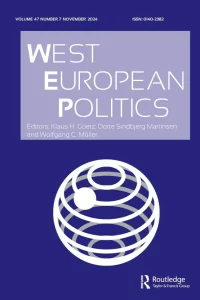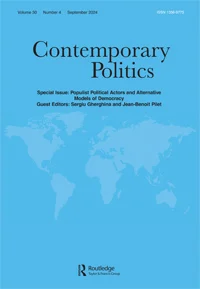The British decision to leave the European Union after the 2016 referendum raises questions about who could be next. This article analyzes why citizens in East European Member States would vote to leave the European Union in the event of further referendums. It proposes an analytical framework that seeks to explain this strong form of Euroscepticism through four variables that are rarely linked to the European Union: political apathy and alienation, dissatisfaction with domestic democracy and economy, conservative values, and social isolation. We use individual-level data from the 2018 wave of the European Social Survey to show that citizens’ conservative attitudes and social isolation are robust determinants of a potential European Union exit vote in Eastern Europe. We also identify several country-specific causes, which means that the European Union faces particular challenges across political settings.





